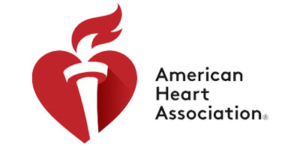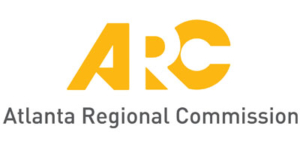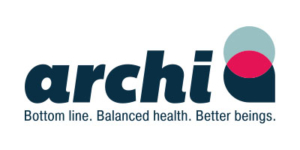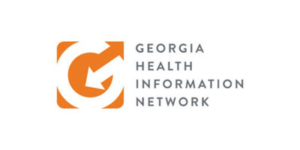VALUE-BASED HEALTH CARE: ATLANTA PILOT
The Atlanta Value-Based Health Care Pilot is aimed at launching a value-based healthcare model that improves outcomes and reduces costs for heart failure patients who receive care in facilities located in Cobb, Fulton, or DeKalb counties. This project marks the first time multiple major health systems and payers in the Atlanta market are working together and jointly engaging a network of nonclinical community service providers in metro-Atlanta.
This multisystem, multipayer pilot will align, track, and benchmark outcomes on a neutral platform with a patient-centered focus in all phases of the project. It also shifts funding to support quality and not quantity of care. While heart failure is the current focus, the infrastructure built through this effort is designed to address additional health conditions appropriate for a value-based orientation.
This is a 5-year pilot that implements and refines the model in Years 1 and 2 and executes value-based payment contracts between health systems and payers in Years 3 through 5.
OUR GOALS & FOCUS
The ambitious but achievable goals of this pilot include:
- Improving quality of care for heart failure patients in Atlanta through the linkage of social supports and clinical care
- Standardizing data collection across health systems, including post-discharge care
- Reducing readmission rates for patients with chronic heart failure
- Reducing costs for health systems and payers
- Improving patient-reported outcomes
- Instituting value-based payments that incentivize better patient outcomes and lower healthcare costs.
- Sharing best practices across local health systems
CREATING VALUE
This pilot seeks to optimize value for both providers and payers. Payers are pooling their funds to support the value-based payments. Currently, the planned payment model allows for two value-based payment streams, though this is being negotiated.
- A per patient payment for all patients (approximately 6,000 per year). All providers and payers will have access to the patient data to learn how socioeconomic and other factors impact disease management, progression, and overall healthcare expenses.
- A bonus payment for health systems that reduce admissions through an evidence-based intervention to a targeted 1,000 patients.
Together, the collaborative has been structuring this project and the payments according to the “wins” they want to achieve. These include:
- Better data on heart failure patients
- Standardized data collection across all health systems
- Ability to learn from the entire Atlanta heart failure population, not just members or patients at a specific organization or hospital
- Shared savings bonus payment when reductions in admissions have been achieved
- The opportunity to include all lessons from the two-year pilot in ongoing contracts
ASSUMPTIONS AND GUIDING PRINCIPLES
In addition to our stated goals, the pilot has a number of assumptions and guiding principles. These include:
- Mitigate risk on all sides
- Minimize data collection and entry by building on existing electronic medical records (EMRs) and other data and data-sharing systems
- Only collect data that has a purpose and in a format that can be analyzed
- The current drivers of poor quality and high cost can be traced to the lack of connection to social and community supports for heart failure patients. This project’s emphasis will remain on these connections, leaving any changes to clinical practices to individual health systems.
- Currently negotiated contracts between health system and payers will continue to exist, this project only seeks to inform future contracts and payments
ACTIVITIES
In order to implement this pilot, the program team is focusing on six main activities:
- Data standardization around the International Consortium for Health Outcomes Measurement (ICHOM) Heart Failure dataset, which includes reconciling existing data collection at each health system, adoption of the ICHOMS Heart Failure dataset, obtaining any necessary licenses (such as for the KCCQ12), and building any additional data fields into the EMR.
- Data collection, which begins with three months of baseline data collection using the ICHOMS heart failure dataset and a few additional key outcomes. Because many health systems are not quantitatively capturing information around the social determinants of health, we want to collect standardized data that will inform risk stratification activities.
- Baseline data analysis includes reviewing baseline data; stratifying by age, race, insurance coverage, and other social determinants of health; calculating risk ratios and logistic regression models; and making recommendations for risk stratification.
- Risk stratification is tied to the baseline data analysis and includes developing risk models and informing intervention activities.
- Implementing an intervention that improves post-discharge care for heart failure patients. We’ve initially identified the Coleman Transitions Model as a possible intervention. The Coleman Care Transitions model focuses on the first four weeks post-discharge, and is designed to help patients with medication self-management, guide them through the care process, help with following-up with a primary care provider or specialist as instructed, and help patients identify red flag indicators of worsening conditions and next steps. Additional intervention activities include identifying gaps in current care transition work, modifying intervention activities based on risk stratification findings, and modeling and testing a payment model.
- Developing a Catalog of Social Support that is comprehensive and specific for heart failure patients. This catalog will be virtual and updated regularly and will initially provide information on assistance around prescriptions, transportation, financial resources, stable housing, and support care.
PHASE 1
During Phase 1, Emory Healthcare, Grady Health System, WellStar Health System, and Kaiser Permanente will launch a coordinated data collection phase. There is also the potential for Piedmont Healthcare to participate in Phase 1 as well. There are an estimated 6,000 heart failure patients with an inpatient stays across these systems, and having them launch at the same time will allow for robust data collection for the baseline analysis. Data collection will include the measures outlined in the ICHOMS dataset, but will also include information about heart failure stage and other demographic measures.
Alongside data collection, hospital systems will begin implementation of the Coleman Transitions model, an evidence-based intervention designed to lower readmissions, on select patients. These patients will be selected based on rigorous risk analysis, which will be standardized across the hospital systems.
A payment model, currently under negotiation, will fund the intervention during the first two years of implementation and reward systems that achieve the pilot’s shared outcomes and goals.
PHASE 2
Phase 2 of this pilot will solidify the infrastructure built within participating health systems and payers to allow re-negotiation of contracts integrating a value-based payment model designed to improve outcomes and reduce costs of heart failure patients.
LEADERSHIP
The project is co-led by the Atlanta Regional Collaborative for Health Improvement (ARCHI) and the Metro Atlanta Regional Office of the American Heart Association. The leadership team also includes the benchmarking and intervention lead agencies, the Atlanta Regional Commission, the City of Atlanta and the Georgia Health Information Network.
Partners participate actively in workgroups focused on the major activities detailed above. An executive team of vested partners guides decision making for the overall effort.
Innovation dollars to support the continued project design have been contributed by Kaiser Permanente, Humana, Centene, Medtronic and the American Heart Association. This pilot falls under the larger value-based healthcare portfolio of the World Economic Forum.
SIGNED PARTNERS
- American Heart Association
- ARCHI
- Atlanta Regional Commission
- Blue Cross Blue Shield
- Boston Consulting Group
- Centene
- City of Atlanta
- DeKalb County Board of Health
- Georgia Department of Public Health
- Emory Healthcare
- Georgia Health Information Network
- Grady Health System
- Home Instead Senior Care
- Humana
- Kaiser Permanente
- MYIA
- Medtronic
- Morehouse School of Medicine
- Novartis
- Philips
- Qualcomm Life
- United Health Group
- WellStar Health System
- Welltower
- World Economic Forum
Next steps
In 2019 we will focus on:
Refining workflows and timelines
Data standardization and ensuring that all health systems are connected to the Georgia Health Information Network
Creating project data warehouse and begin initial data collection
Conduct baseline analysis and risk stratification
Match interventions with risk profiles
Begin in data analysis and begin the process to develop an expanded project
SIGNED PARTNERS
This initiative is made possible through collaboration between:






